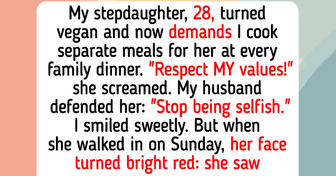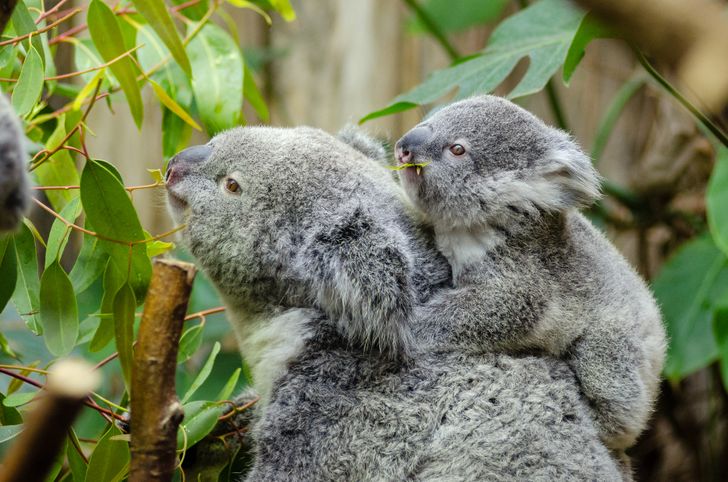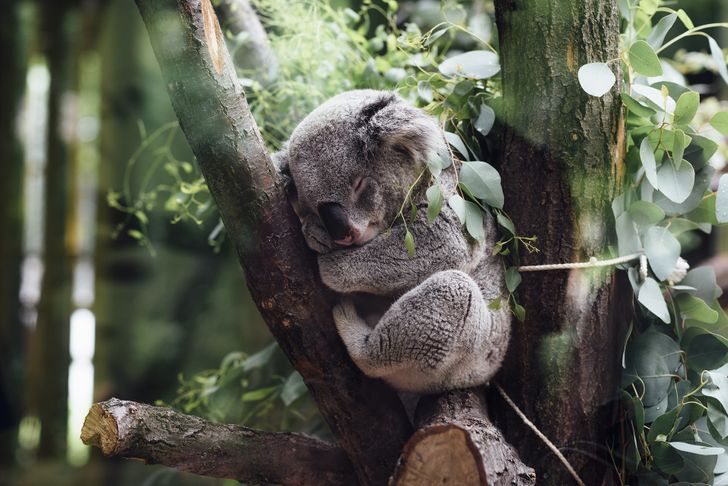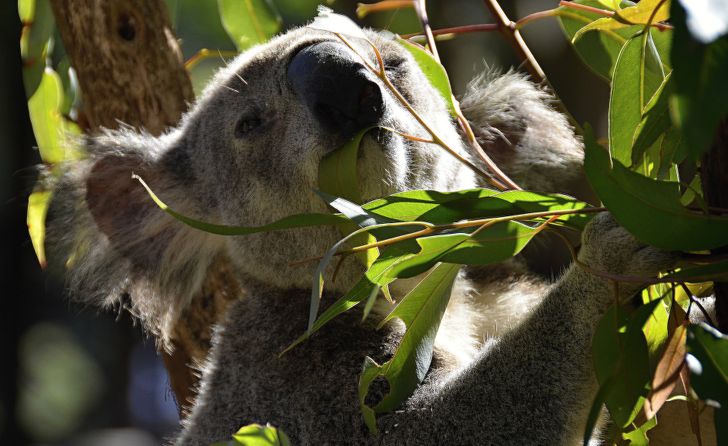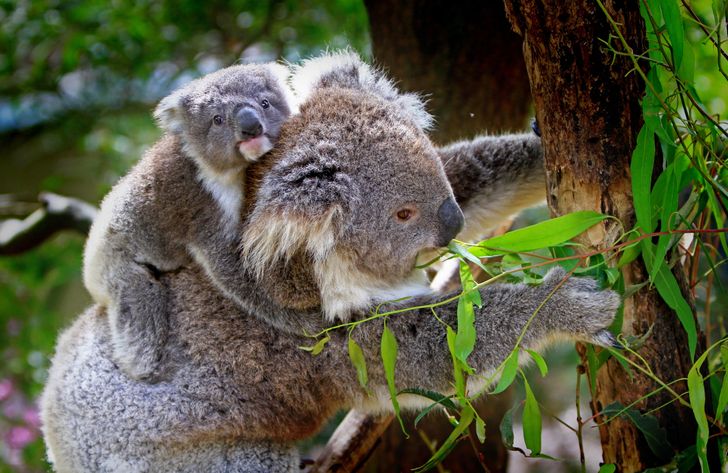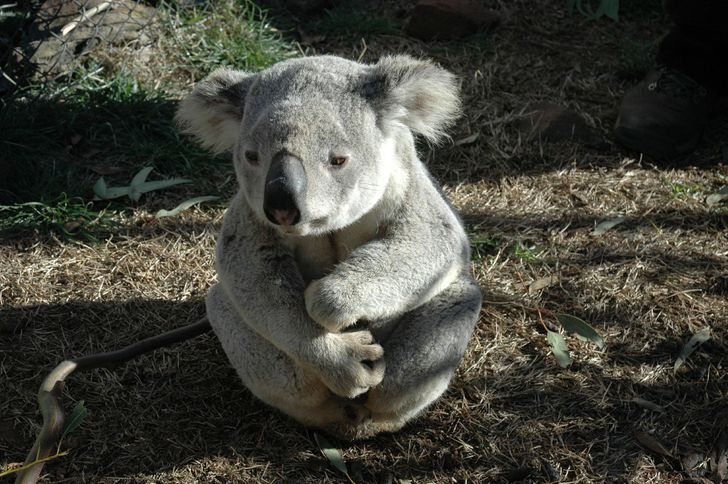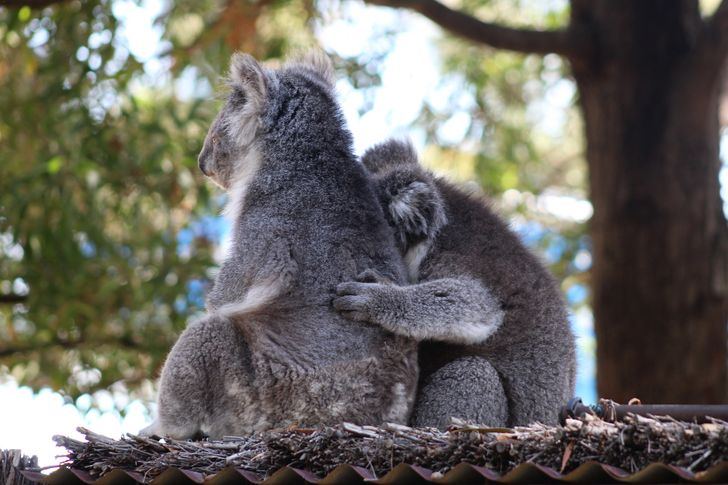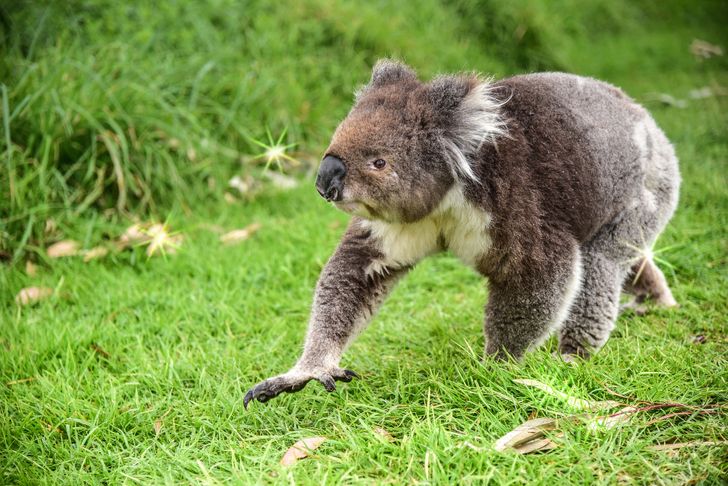even poor koalas are not about to extinct. What have we done to the planet
Koalas Are on the Verge of Extinction, but You Can Adopt One and Help Save Them
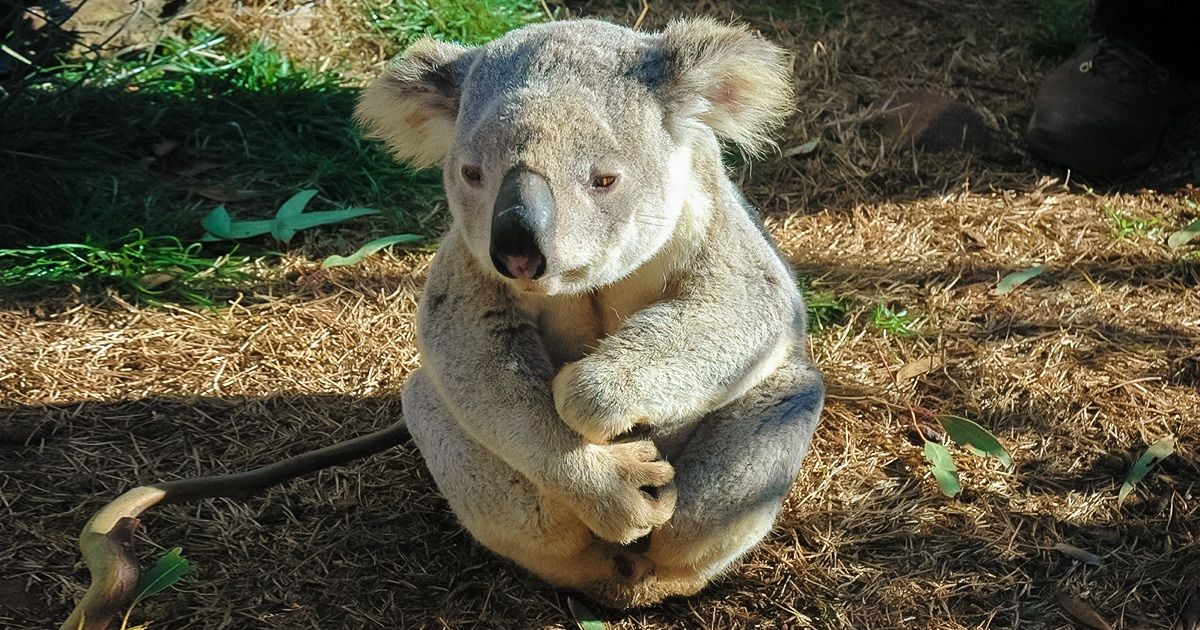
Koalas, those adorable marsupials that have become a symbol of Australian biodiversity were recently declared “functionally extinct.” This means that there are so few of them that koalas now have no influence on their ecosystem. However, there is still hope for these creatures and you can be a part of it.
Bright Side would like to welcome you to learn more about these adorable animals to understand why we should protect them from extinction.
1. Koalas aren’t bears.
Although they look like adorable teddy bears, in reality, koalas belong to the marsupial family, the same as kangaroos and opossums. Like other marsupials, when they’re born, koalas are as small as a bean and move to their mother’s pouch, where they complete their development.
Curious fact: In Australia, marsupial babies are known as “joeys.”
Although their fur looks spongy and soft, it is actually thick enough to protect them from cold and heat. The decrease in their population that took place until the last century was caused, to a great extent, by massive hunting to obtain their skin.
2. They can get very noisy.
The sounds they emit may not be as adorable as their appearance. According to experts, koalas have at least 4 types of calls to communicate, ranging from squawking and growling to weeping. In the video, we can hear a howl that they usually make when feeling threatened.
Males also have an extra pair of vocal cords outside the larynx that enables them to produce a deep and low pitched sound to attract female koalas during mating season. The sound travels through the woods and can be detected from as far as a kilometer away. Upon hearing it, females know where the males are and what size they are, since they prefer the bigger males.
3. They drink almost no water.
Their name means “not water” in the aboriginal language, because they obtain all the hydration they need from their main food: Eucalyptus leaves. Koalas only drink water when they’re sick or in case of a drought when the eucalyptus leaves are not watery enough. They may not drink much water, but they like it. They’re also good swimmers even though they can only swim short distances before feeling tired.
4. They are absolute sleepyheads.
Koalas sleep up to 20 hours a day! Their digestion is extremely slow, so they tend to be inactive for long periods of time. Because of this and also because of their nocturnal habits, it’s often difficult to catch a glimpse of them. Also, during the few hours that they stay awake, koalas only socialize for an average of 15 minutes.
5. They have a special relationship with the eucalyptus tree.
Koalas consume more than 2 pounds of eucalyptus leaves per day, but it’s not just their food; eucalyptus forests are also their natural habitat. What’s interesting is that koalas also help these forests grow because their feces contribute nutrients to the soil.
Eucalyptus leaves also have substances that could be deadly for almost all animals, but koalas have evolved to be able to process these toxins. They’re even able to distinguish which leaves have more nutrients and are less toxic, as well as identify their moisture level.
Eucalyptus leaves are so poisonous that koala mothers make their babies used to these substances by using an interesting technique: When koalas are 2 months old, in addition to milk, moms feed the babies with a sort of liquid pap that comes directly from their digestive system and reaches the pouch. This “pap” is a softened version of the eucalyptus leaves and contains all the bacteria that the baby needs to digest the leaves as an adult.
But what may look like an evolutionary advantage is now their greatest vulnerability. Koalas depend solely on eucalyptus to feed themselves. The destruction of the woods due to the expansion of cities, the growing number of forest fires caused by climate change, and the greenhouse gases that decrease the amount of nutrients in the leaves are the central causes of koalas going extinct.
6. They’re vulnerable to chlamydia.
This sexually transmitted disease that afflicts humans can also affect koalas in the wild. Even joeys are at risk of getting infected after feeding on their mothers. Antibiotic treatments have been tested, but they caused the death of the bacteria that allows koalas to consume eucalyptus leaves. It put their lives at risk. Sadly, chlamydia can also cause blindness, infertility, and death, which contributes to the decline in their population.
7. They’re victims of car accidents and dog attacks.
To the list of koalas’ natural predators, which is pretty long, we need to add the highways that cross their forests and their proximity to people’s pets. There have been many car accidents that continue to decimate the population, although some measures have been taken to reduce the speed limit, primarily at night, when they’re active.
There have also been many encounters with dogs. Nevertheless, they can sometimes become genuine allies and work to protect them. This happened in a story showed in the news where a small orphaned joey took refuge on the back of a golden retriever to save himself from low temperatures, and the pup had no problem taking care of him all night.
What can we do for koalas?
The Australian Koala Foundation is the leading organization working toward the conservation of koalas. They have urged the country’s incoming government to protect these charismatic animals. The foundation has also prompted the administration to support them in their efforts, which include different strategies regarding education about koalas, the pressure to create laws to protect them, the tracking of the species within the territory, and many other actions.
Although it’s an animal that’s unique to Australia, the country has several nonprofit institutions that create worldwide campaigns to help them. If you want to offer some support, you can donate money directly, buy products, and even plant a eucalyptus tree at a distance. But the most fun part and the part that will melt your heart is that you can adopt a koala.
Yes, it would be a symbolic adoption, since you don’t get to take it home with you. But if you do this good deed, you will obtain a certificate with a picture of your koala, its name, and a short history about its life. Plus, if you travel to Australia, you can meet the koala you adopted if it’s available for visits, of course.
Koalas are one of the most distinctive animals of the Australian biodiversity, and substantial efforts are being made to prevent it from becoming just a memory of a species we couldn’t save from extinction.
Do you think koalas are adorable? How would you like to help with their conservation? Share your ideas in the comments!
Comments
I like the idea of "adopting' one.. I wonder how much it costs? I would love to see the photos tooooo ?
Related Reads
13 Family Conflicts That Sound Straight Out of a Soap Opera

11 Times People Showed That Real Courage Isn’t Loud—It’s Kind
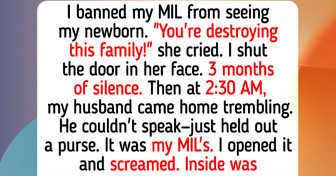
12 Acts of Kindness That Prove the Human Spirit Is Truly Unbreakable
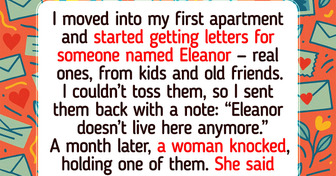
I Refused to Return to the Office After Years of Remote Work — Then HR Dropped a Bombshell

I Excluded My Stepson From Our Trip — My Husband Made Me Regret It
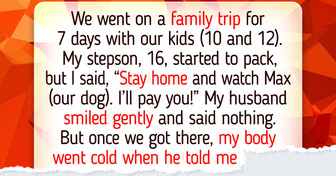
I Refused to Return My Coworker’s Old Office—Now the Whole Team Has Turned on Me

I Refuse to Let My Daughter Treat My Home Like Her Business, I’m Not Her Personal Maid

My In-Laws Forced Me to Leave My Vacation Early—They Crossed Every Line

I Refuse to Split My Stepmom’s Inheritance With My Stepsiblings, I’m Not a Charity
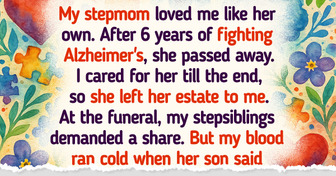
10 Travelers Who Took “Breaking the Rules” Way Too Far
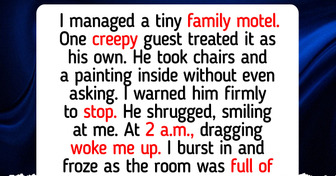
I Refused to Have My MIL on Another Trip If She Won’t Babysit—Her Slapback Was Brutal
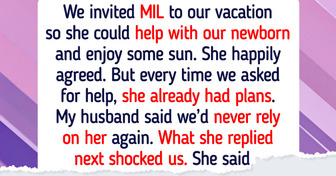
I Refuse to Cook Separate Vegan Meals for My Entitled Stepdaughter, So I Gave Her the Ultimate Reality Check
